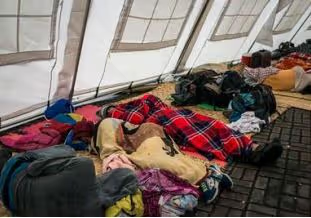Research Snapshot: COVID-19 and Venezuelan migrants in Colombia

How can local health services overcome disparities between Venezuelan migrants and Colombian nationals in access to essential healthcare services?
Questions of how to reach marginalized vulnerable groups, including migrants and internally displaced people, will continue to be critical for many governments around the world in the aftermath of COVID-19. This study used data from 6 different databases across 60 municipalities in Colombia to generate insights on how Venezuelan migrants accessed healthcare during the pandemic, and the impacts of public health policies, to inform local health services planning and decision-making.
The study found:
- Venezuelans had only one third the rate of hospitalizations and one fifth the rate of consultations compared to Colombians in the same municipality.
- Venezuelans had only one tenth the rates of officially reported COVID-19 cases than Colombians in the same municipality, due largely to Venezuelans’ lower access to testing and treatment for COVID-19.
- Mask wearing and mobility restriction are the best tools to reduce COVID cases especially for municipalities with large Venezuelan migrant populations.
Photo credit: Venezuelan women and children staying the night in tents next to the Red Cross health centers. © European Union (Photographer N. Mazars) 2018 (Source: Flickr)